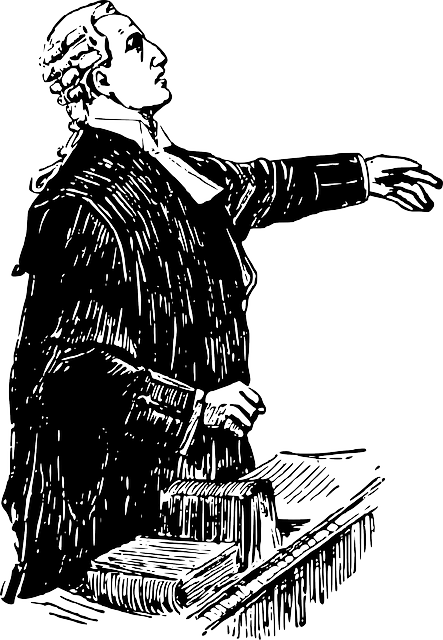Probate is a legal process ensuring the deceased's will is validated, their assets are distributed fairly according to legal standards, and all parties' rights are protected. Complex estate disputes requiring professional help arise from will validity, competency, or errors in administration. Engaging experienced probate lawyers specializing in estate law for estate distribution cases is crucial. They navigate court procedures, interpret laws, advocate for clients' interests, and achieve equitable outcomes in contested will disputes and intricate asset scenarios.
“Unraveling the complexities of probate and ensuring a fair estate distribution is a delicate process that often requires legal expertise. This comprehensive guide delves into the intricacies of legal representation during probate adjustment requests. From understanding the foundational concepts of probate to navigating the crucial role of lawyers in these proceedings, we explore when legal assistance is paramount. Additionally, we provide key insights on selecting the right counsel and what to expect throughout the process, empowering individuals to make informed decisions regarding their estate distribution.”
- Understanding Probate and Estate Distribution: A Basic Overview
- The Role of Legal Representation in Probate Proceedings
- When is Legal Assistance Necessary for Probate Adjustments?
- Key Considerations for Choosing a Lawyer for Estate Distribution Cases
- Navigating the Process: What to Expect After Engaging Legal Counsel
Understanding Probate and Estate Distribution: A Basic Overview

Probate is a legal process that facilitates the transfer of a deceased person’s property and assets to their beneficiaries. It involves evaluating and verifying the validity of a will, ensuring that it adheres to legal requirements, and administering the distribution of the estate. The process can be complex, especially when there are disputes or adjustments required. Estate distribution, a key aspect of probate, refers to the fair allocation of assets among the heirs as outlined in the will or as determined by the court.
In many cases, an individual may have specific instructions regarding how their estate should be divided, often detailed in a will. This outlines beneficiaries and the share each is entitled to receive. However, circumstances can change over time, leading to the need for adjustments. Probate provides a structured framework to address these changes, ensuring that the original intentions are carried out while also considering any legal requirements and rights of involved parties.
The Role of Legal Representation in Probate Proceedings

In probate proceedings, legal representation plays a pivotal role in ensuring fairness and protecting the interests of all involved parties. When it comes to probate adjustment requests, where individuals seek to challenge or modify aspects of an estate distribution, having competent legal counsel is indispensable. Lawyers specializing in probate law possess in-depth knowledge of complex legal procedures, enabling them to navigate the intricate landscape of estate administration.
They guide clients through every step, from preparing and filing necessary documentation to representing their case in court if required. This representation is particularly crucial when dealing with sensitive matters like disputed wills, questionable beneficiaries, or unfair distributions. Legal professionals can offer strategic advice, interpret relevant laws, and advocate for their client’s rights, ultimately facilitating a more equitable resolution of the probate matter.
When is Legal Assistance Necessary for Probate Adjustments?

Probate adjustments, which involve modifying or contesting aspects of an estate distribution, can be complex legal matters. While some adjustments may be handled without legal assistance, there are several situations where professional help is crucial. Estate disputes often arise from disagreements over the validity of a will, questions of competency at the time of its creation, or errors in the administration of the estate. When these issues surface, it’s essential to have an attorney who specializes in probate law navigate the complexities.
Additionally, legal assistance becomes necessary when dealing with intricate matters such as contested assets, hidden or misrepresented property, or complex financial instruments within the estate. An experienced lawyer can provide guidance on navigating court procedures, understanding relevant laws, and presenting a strong case to protect the rights of all parties involved in the probate process. They ensure that every step is taken accurately and within legal parameters, increasing the chances of a favorable outcome regarding the desired estate distribution.
Key Considerations for Choosing a Lawyer for Estate Distribution Cases

When selecting legal counsel for an estate distribution case, several crucial factors come into play. It’s essential to consider a lawyer with proven experience in probate and estate law, as this area is highly specialized. Look for attorneys who regularly handle complex cases, especially those involving contested will disputes or intricate asset distribution scenarios. Their expertise can ensure your case is handled with the utmost professionalism and knowledge of current legal precedents.
Additionally, the attorney-client relationship is vital, so choose a lawyer you feel comfortable communicating with openly. Clear communication channels and a willingness to listen to your concerns and goals are key. Ensure they have a track record of successful outcomes in similar cases, demonstrating their ability to navigate the complexities of estate distribution effectively.
Navigating the Process: What to Expect After Engaging Legal Counsel

After engaging legal counsel for probate adjustment requests, individuals can expect a structured and strategic approach to navigating the complex process. The first step typically involves a thorough review of the estate documents and relevant laws to assess the feasibility of the request. Legal professionals will then guide their clients through each stage, ensuring compliance with strict procedural requirements. This includes preparing and filing necessary paperwork, gathering supporting documentation, and potentially negotiating with opposing parties or beneficiaries.
Throughout this journey, legal counsel plays a pivotal role in explaining the intricacies of estate distribution, potential outcomes, and the best strategic moves. They advocate for their client’s interests, ensuring that all adjustments are made fairly and in accordance with legal principles. This support is invaluable, as it helps individuals traverse the labyrinthine probate process with confidence, ultimately fostering a positive outcome.






